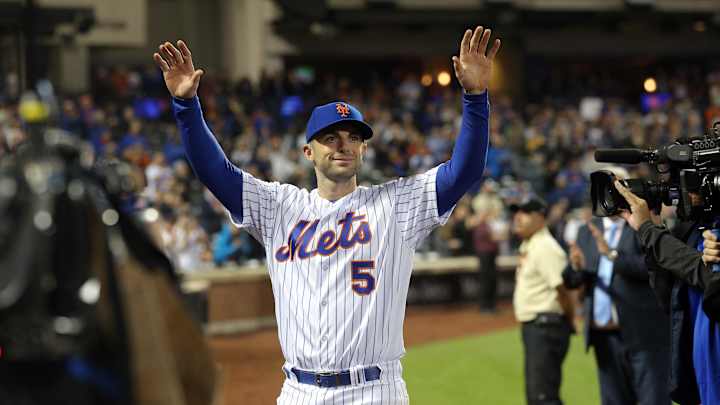New York Mets Star Lags Behind In Early Hall of Fame Voting

Three former New York Mets are on the 2024 Baseball Hall of Fame ballot, but the one that Mets fans would most associate with the team is the one lagging behind in early voting.
Former star David Wright was listed on just two of the first 25 ballots cataloged by members of the Baseball Writers Association of America and made public. Wright is in his first year on the ballot.
Wright played 14 seasons for the Mets. He made seven All-Star teams, won two Gold Gloves at third base and two Silver Slugger awards. He finished in the Top 10 in NL MVP voting four times, hit 20 or more home runs six times and drove in 100 or more runs five times. He also batted better than .300 in seven different seasons.
Wright was a career .296 hitter with 242 home runs and 979 RBI. But the final four years of career were cut short by injuries, including a spinal stenosis diagnosis. He missed the entire 2017 season and only played 77 games in his final four seasons.
The other two Mets on the ballot — Gary Sheffield and Billy Wagner — are much closer to induction.
Sheffield has 76% of the vote, or 19 of the 25 ballots cast. Sheffield played his final season with the Mets in 2009 and finished his career with 509 home runs and 1,676 RBI. He was a nine-time All-Star, a five-time Silver Slugger and claimed a World Series ring with the 1997 Marlins. This is Sheffield’s final year on the ballot.
Wagner has 72% of the vote, or 18 of the 25 ballots cast. Wagner spent four seasons with the Mets and saved 101 games. He made the All-Star Game twice with New York and he finished his career with 422 saves. He is in his ninth year on the ballot.
One player — former Texas Rangers third baseman Adrián Beltré — was listed on all 25 ballots.
After 25 votes, the following players have at least 75% of the votes, the percentage needed for induction — Todd Helton (88%) and Joe Mauer (84%). The 2024 induction ceremony is set for July 21 in Cooperstown, N.Y.
Whoever earns induction will join former manager Jim Leyland, who was voted in on the Contemporary Baseball Era Managers/Executives/Umpires ballot at the Winter Meetings.
